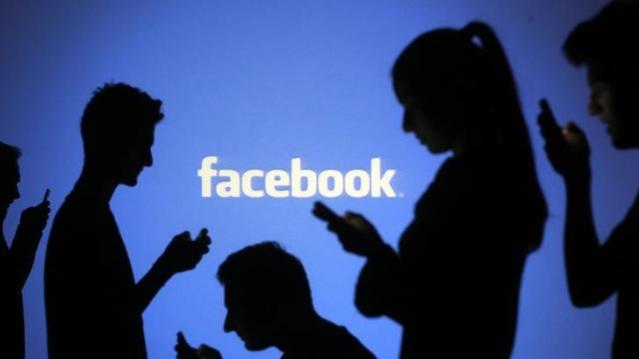How IBM Is Making Your Passwords Useless
For years, quantum computing has been hailed as a technology that could change the way the modern world works, but a long-standing technical issue has kept that potential from being realized. Now, in a paper published in the journal Nature last week, IBM scientists have taken a big step (see how I avoided the temptation to make a pun there?) toward solving that problem — and while it could represent progress toward making quatum computers real, it also could mean that current cybersecurity standards will soon be much easier to crack. In other words, your passwords could be obsolete soon.
The power of quantum computing has some obvious appeal: The increase in processing power could speed up research, especially in big data applications. Problems with large datasets, or those that need many millions (or billions, or more) of simulations to develop a working theory, would be able to be run at speeds unthinkable today. This could mean giant leaps forward in medical research, where enhanced simulations can be used to test cancer treatments or work on the development of new vaccines for ebola, HIV, malaria and the other diseases. High-level physics labs like CERN could use the extra power to increase our understanding of the way the universe at large works.
But the most immediate impact for the regular person would be in the way your private information is kept safe. Current encryption relies on massively large prime numbers to encode your sensitive information. Using combinations of large prime numbers means that anyone trying to crack such encryption needs to attempt to factor at least one of those numbers to get into encrypted data. When you buy something from, say, Amazon, the connection between your computer and Amazon is encrypted using that basic system (it's more complicated than that, but that's the rough summary). The time it would take a digital computer to calculate these factors is essentially past the heat death of the universe. (Still, this won't help you if your password is password, or monkey, or 123456. Please, people, use a password manager.)
Quantum computing, however, increases processing speed and the actual nature of the computation so significantly that it reduces that time to nearly nothing, making current encryption much less secure.
The IBM researcher that could make that happen is complicated, and it requires some background explanation. For starters, while a "traditional" computing bit can be either a 0 or a 1, a quantum computing bit can have three (or infinite, depending on how you want to interpret the concept) states. More specifically, a qubit can be 0, 1, or both.
 Up until now, the both part of that caused some problems in realizing the power of quantum computing.
Up until now, the both part of that caused some problems in realizing the power of quantum computing.
Apparently — and you'll have to take this on faith a bit, as it hurts my head to think about it — the both state can switch back to either 0 or 1 at any given point, and sometimes incorrectly, based on the logic in the programming. Think about when your phone freezes up for a second or two while you're matching tiles. This is its processor handling vast amounts of information and filtering out the operations that fail for any number of reasons, from buggy code to malware to basic electrical noise. When there are only the two binary states, this is a process that usually happens behind the scenes and quickly.
The hold-up with quantum computing up until now is that the vastly greater potential for errors has stymied attempts to identify and nullify them. One additional wrinkle in this reading quantum states is familiar to anyone with basic science fiction knowledge, or perhaps just the ailurophobics. What if the action of reading the qubit actually causes it to collapse to 0 or 1?
The very smart people at IBM think they've solved this. The actual technical explanation is involved, and well beyond my ability to fully follow, but the gist is that instead of just having the qubits arrayed in a lattice on their own, they are arranged such that neighbors essentially check each other, producing the ability to check the common read problems.
That opens the door to further quantum computing developments, including ones that will make your password a thing of the past. So, does this mean that you need to start hoarding gold? No, not yet. And hopefully before quantum computing reaches commercial, or even simply industrial/governmental levels, a better cyber security method will be in place. Or the robots will have already taken over. I for one welcome them.
Why More Workers Are Saying ‘No Thanks’ to a Full-Time Job

After years of keeping a conservative head count, companies have finally started to hire workers again. But they may find that many workers aren’t interested in becoming full-time employees anymore.
Related: 6 Secrets of Successful Freelancers
The number of independent workers increased by 12 percent in the past five years, and nearly 80 percent of those who work for themselves plan on remaining independent, according to a new report by MBO Partners. One in seven non-independent workers is considering going freelance.
Nearly 80 percent of freelance workers say that they’re happier working for themselves, thanks to the flexibility of being their own boss. Plus, they’re earning decent money.
More than a quarter of independent workers earn more than $75,000 per year, and the number making more than $100,000 per year has surged by 45 percent to almost 3 million.
The majority of today’s freelancers have actively chosen to go independent. Technology has made the shift easier, and Obamacare has made it possible for independent workers to secure health benefits for themselves and their families. However, they may be slacking when it comes to retirement planning. Seven in 10 self-employer people don’t save for retirement regularly, according to a separate report from TD Ameritrade.
Related: The 10 Best Cities for Summer Travelers
The number of full-time, independent workers now totals nearly 18 million Americans, with another 12.5 million who doing contract work part-time. Independent workers say they feel more secure working freelance, thanks to an average of four or more revenue streams, according to the MBO Partners report.
Watch Out, YouTube! Facebook Wants Your Video Action

It was only a matter of time before Facebook figured out a way to make money from the videos that are played on their platform. As Fortune points out, before now, video creators didn’t have a way to make money on the Facebook platform. That all changes today, with Facebook’s new plan to monetize videos and share the revenue with creators. The revenue arrangement is the same as YouTube’s: 55 percent of the money earned from ads goes to the creator, and 45 percent goes to Facebook. So far, the program has a couple of dozen partners who have signed up, including the NBA, Fox Sports, Hearst, and Funny or Die.
Related: Facebook gaining ground on YouTube in video ads, report says
Prior to the new plan, Feed videos would only play mutely until the user clicked on them. Now, when users play a video on mobile, they will get a feed of “Suggested Videos.” It’s not until a few of these videos play, that the user will see an actual ad. And these ads, unlike Facebook’s autoplay videos, will play with the sound turned on.
In the past few weeks, the social media giant has tested the “Suggested Videos” product with a small number of iOS users. Today the test goes wider, and will eventually expand to include Android and desktop users.
Unlike YouTube, which gives content creators 55 percent of the revenue from the ads it plays before videos, Facebook will divvy up the 55 percent in revenue among multiple creators or partners. For example, if you watched a three-minute video from the NBA, and a two-minute video from Funny or Die, the 55 percent in ad revenue would be split proportionately between the NBA and Funny or Die.
Related: Will Facebook Kill the News Media or Save It?
Industry experts fully expect video—especially mobile video—to be a major source of revenue for Facebook in the future since users already deliver four billion videos views daily. The company made $3.3 billion in ad revenue in the first quarter of 2015, 73 percent of it from mobile ads alone. For now, Facebook says it is focused on shorter video formats, not long-form video formats like TV shows and movies.
To date, YouTube has been the only major player in user-posted video, but Facebook is stepping up its game. It just announced to advertisers the option to pay for video ads only after a video has played for 10 seconds. It’s a response to announcements that Snapchat and Twitter are rolling out video divisions too. In May, Spotify added video-streaming to its music-streaming app. And Hulu, Yahoo, and AOL are also pushing their video strategies.
For content providers, it’s a new way to play—and pay.
Did Airlines Collude to Keep Air Fares High?

For months now, oil and gas prices have been dropping—and that includes jet fuel. So why haven’t airline ticket prices dropped as well? That’s one of the questions the Justice Department wants answered as it investigates the possibility of collusion among carriers to keep airfares high.
The DOJ also wants to know if companies conspired to limit the number of available seats in order to drive prices up. Yesterday, the Associated Press broke the news that major U.S. carriers had received a letter demanding copies of all communications the airlines had with each other, Wall Street analysts, and major shareholders about their plans for passenger-carrying capacity, going back to January 2010. The civil antitrust investigation is focusing on whether airlines illegally indicated to each other how quickly they would add new flights, routes, and extra seats in an effort to prop up ticket prices.
Related: 6 Sneaky Fees That Are Making Airlines a Bundle
Just minutes after the news broke, stocks of the major U.S. airlines fell four to five percent, with the S&P 500 airlines index off more than four percent. Until now, the U.S. airline industry had been enjoying record profits, due to increasing numbers of Americans flying and a huge drop in the price of jet fuel. In April, the price of jet fuel was $1.94 per gallon, a decrease of 34 percent from the previous year.
The investigation marks a notable shift for the Justice Department, which approved the merger of American Airlines and US Airways back in November 2013, despite previously blocking it over concerns that the airlines would collude on fares. The probe could signal a more aggressive approach on antitrust enforcement, under the strong leadership of Loretta Lynch, who was confirmed in April.
Justice Department spokesperson Emily Pierce confirmed that the department was investigating potential “unlawful coordination” among some airlines.
Just two weeks ago, U.S. Senator Richard Blumenthal (D-CT) urged the Justice Department to investigate what he called “anti-competitive, anti-consumer conduct and misuse of market power in the airline industry.”
Related: United Airlines Bullish on First Quarter from Lower Fuel Costs
Since 2008, various mergers have resulted in four major airlines (down from nine)—American, Delta, Southwest, and United—controlling about 80 percent of all domestic air travel. All four airlines have confirmed that they received the letter and that they were cooperating with the investigation.
According to Bureau of Transportation Statistics, the average domestic airfare rose 13 percent from 2009 to 2014 (adjusted for inflation). The average domestic flight last year cost $391. In the past year alone, airlines received an additional $3.6 billion from bag fees and another $3 billion from reservation-change fees. All of the major airlines—American Airlines, United Continental Holdings, Delta Air Lines, Southwest Airlines, JetBlue Airways, and Alaska Air Group—posted record profits with a consolidated net income of over $3 billion during the first quarter of 2015.
Here’s Why Whole Foods Is Apologizing to Customers

Stocking up at Whole Foods for a Fourth of July Bar-B-Q this weekend? Better double check the prices you’re paying.
Most customers expect to pay high prices at Whole Foods. The gourmet supermarket is often jokingly referred to as “Whole Paycheck.” But in its New York stores, the grocer may have gone too far.
The company’s co-CEOs admitted in a video shared online yesterday that workers in the stores had been mislabeling the weights of its prepared foods. “Straight up, we made some mistakes,” co-CEO Walter Robb said in the video.
Related: Born in the USA—24 Iconic American Foods
The executives never said the word “sorry,” but said that they would retrain their workers, implement a third-party auditing system, and give items for free to customers who found a mistake not in their favor.
The New York City Department of Consumer Affairs announced last week that an investigation had tested 80 types of prepackaged foods and found that all of them had mislabeled weights.
“It is unacceptable that New Yorkers shopping for a summer BBQ or who grab something to eat from the self-service aisles at New York City’s Whole Foods stores have a good chance of being overcharged,” DCA Commissioner Julie Menin said in a statement announcing the investigation last week. “Our inspectors tell me this is the worst case of mislabeling they have seen in their careers.”
Want to Boost the Value of Your House? Get High-Speed Internet

Having trouble selling your house? A slow Internet connection may be to blame.
Recently, The Wall Street Journal reported that “the availability of speedy Internet service is starting to affect Americans’ biggest purchase: their homes.”
In a study released earlier this week, researchers at the University of Colorado and Carnegie Mellon found that fiber-optic connections can add $5,437 to the price of a $175,000 home. A 2014 study by the University of Wisconsin at Whitewater showed similar results. It found that high-speed access could add $11,815 to the value of a $439,000 vacation house in Door County, Wisconsin.
Related: FCC Change Means Millions No Longer Have Broadband Internet
Some real estate agents are going so far as to tout high-speed Internet service in listings, along with the number of bathrooms and other desirable features.
For most Americans, adding a high-speed Internet line is relatively cheap and easy. And it sure beats renovating the kitchen.
